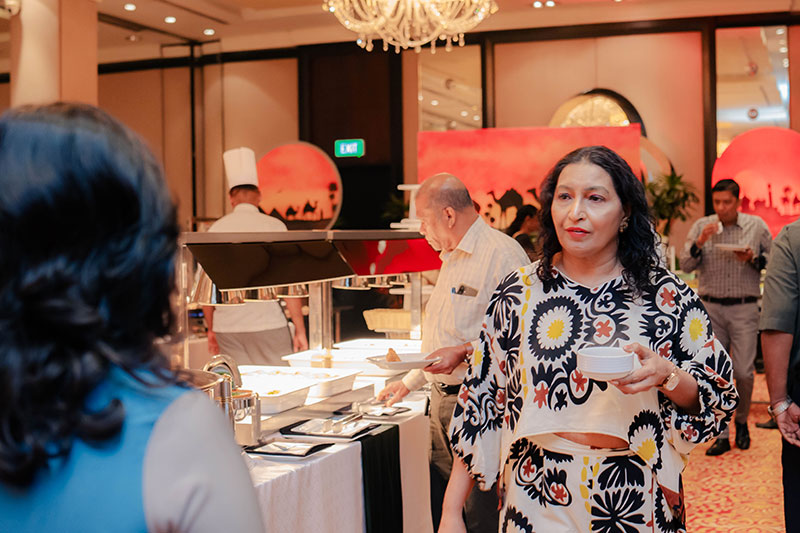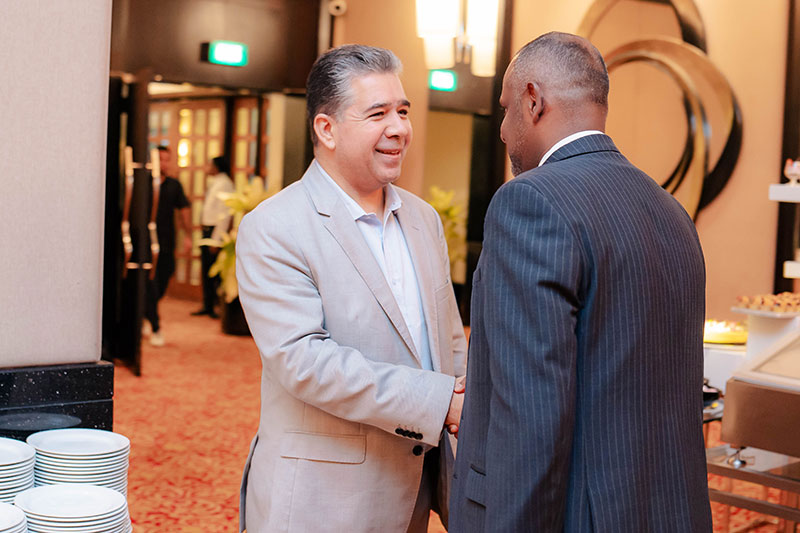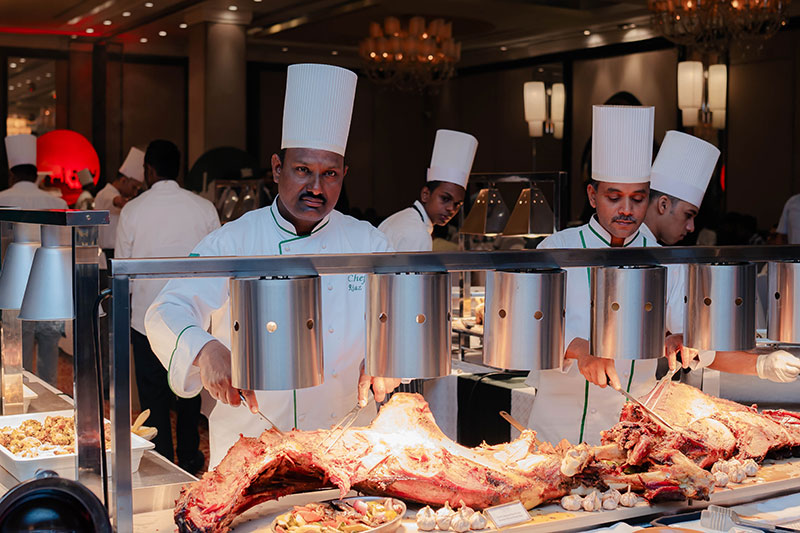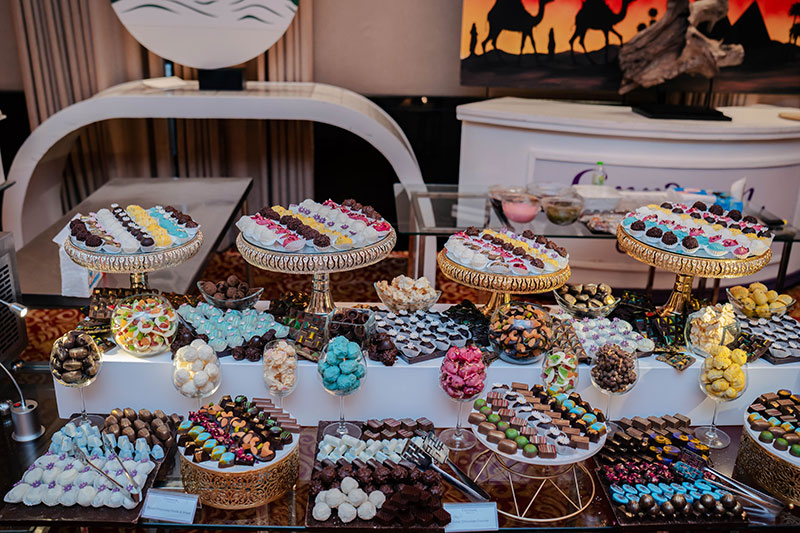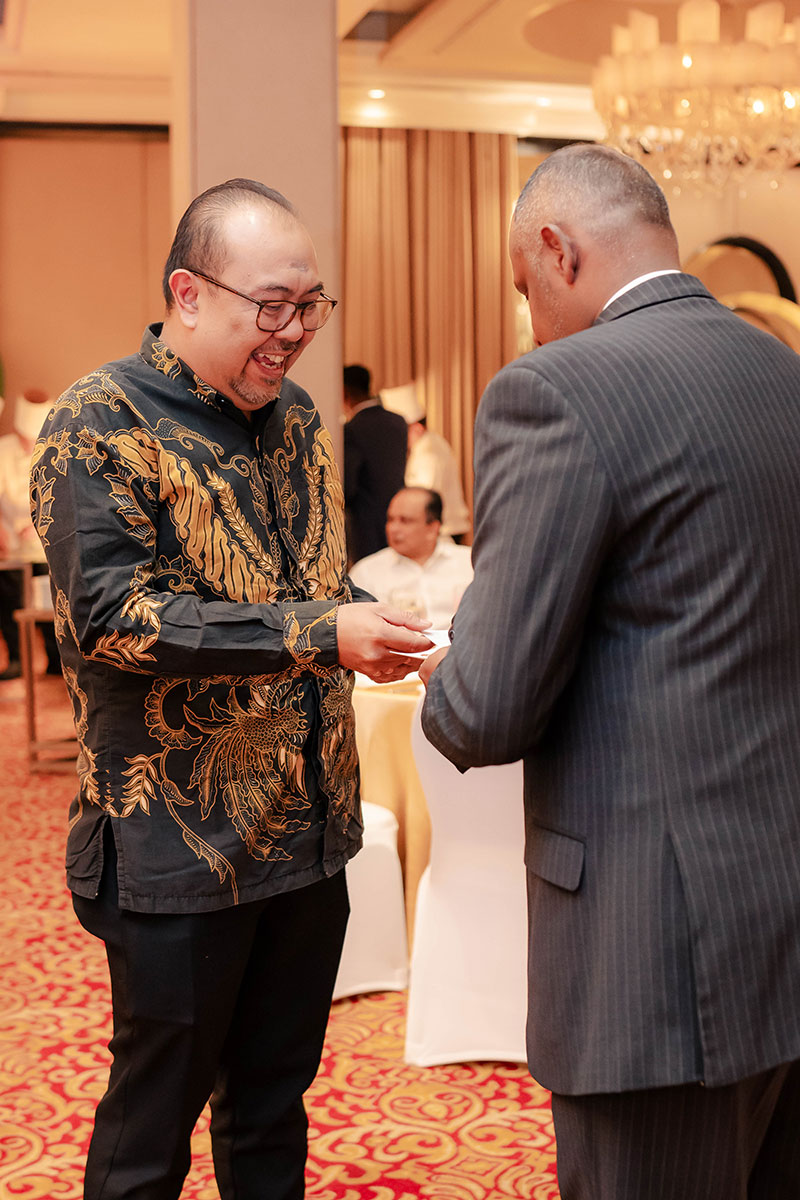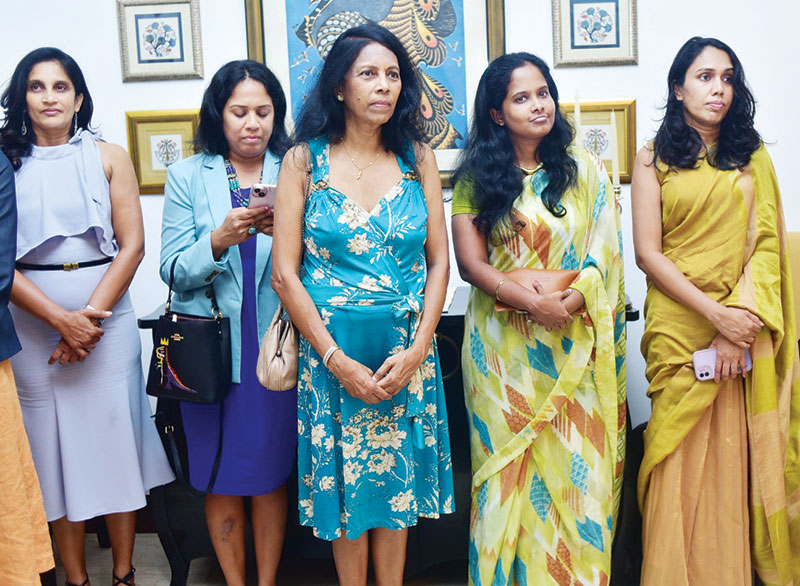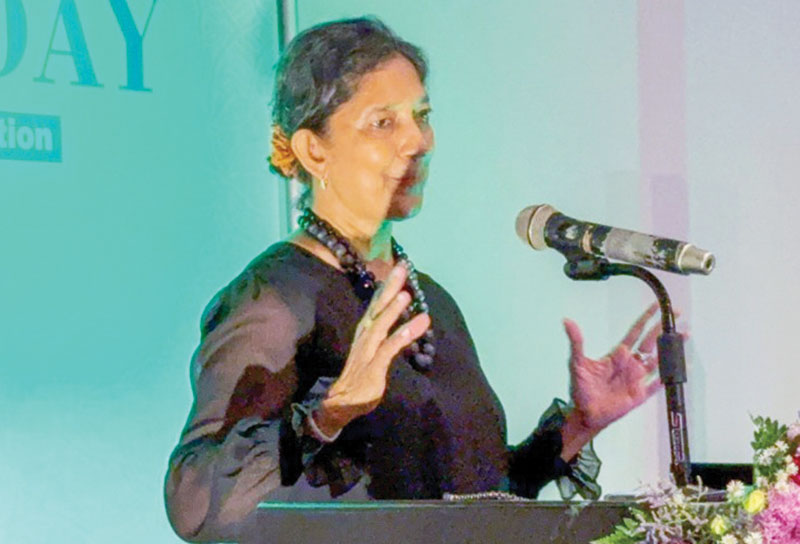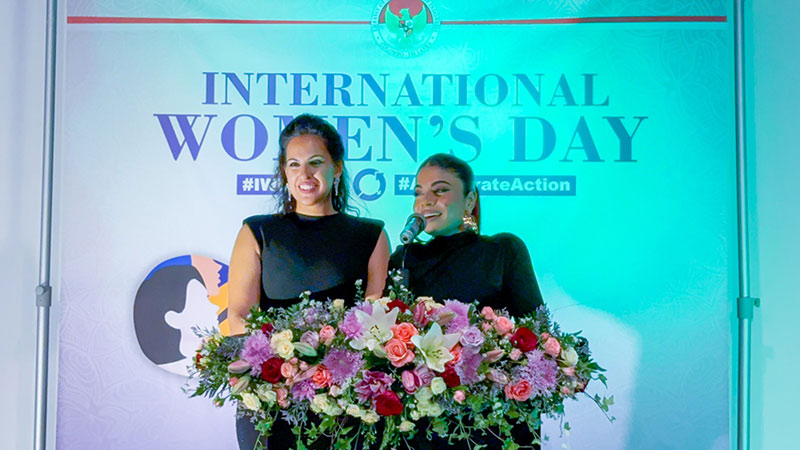Life style
Musical ‘choon paan’bread trucks
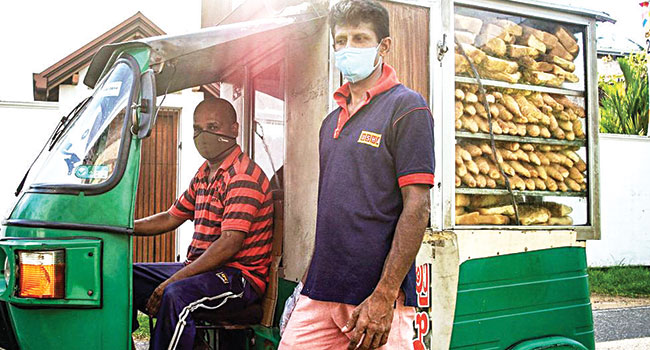
by Zinnara Ratnayake
For years, the sound of Beethoven meant bread in Sri Lanka. Now, years after the island’s mobile bread vendors disappeared, they’re being revived to help during the pandemic.
I was young when I first heard the music. It came from the earthen road outside where a man was selling bread from a tuk tuk. Unlike other colourful three-wheeled vehicles, the back of this one held a glass display cabinet piled high with neatly stacked baked goods. “It’s the choon paan man,” my father told me.
“Choon paan” loosely translates to “music bread” in Sinhala. During my childhood, the fresh-off-the-oven kimbula (“crocodile”) bun we bought from the choon paan man for evening tea gave me bliss. This beautifully fluffy, buttery, home-baked bun was sprinkled with sugar and twisted into a slender, crocodile-like shape. Half of it was for me, the other for my father.
Twice a day starting at 06:30, choon paan trucks would drive along the dusty path near the paddy fields of my family’s rural village in Kurunegala, 120km north-east of Colombo, selling loaves of bread. Early in the morning, the men circled the roads with fish buns and sausage rolls made at small bakeries. They reappeared in the afternoon around 16:00, bringing sweet buns for tea. Some were buttery, round-shaped buns dotted with raisins. Others were stuffed with jam or sprinkled with sugar.
For us growing up on the tropical island, Beethoven meant bread
For years, these small trucks all played the same, tinny recorded music. When I heard the faint hum of the breadman from a distance, I would run to the dusty path and call my father. Years later, during music classes in school, I realised that this familiar tune that we Sri Lankans just called “choon paan music” was actually Beethoven’s 1810 classic Für Elise.
So, how did this classical composition written in Austria come to symbolise fresh-baked confections in Sri Lanka?
When tuk tuks became increasingly popular in Sri Lanka in the early 2000s, many bakers used the three-wheeled vehicles to take their bun business on the road and sell to distant neighbourhoods and villages. This was also around the time when mobile phones became popular. Just as an ice cream truck’s jingle alerts residents that it’s approaching, these mobile bakers started playing their mobile phone’s ringtone through a horn speaker to let residents know the choon paan truck was near.
Of course, one of the most popular ringtones from the early 2000s was Beethoven’s iconic masterpiece, Für Elise. So, whenever people in Sri Lanka would hear it, we’d head out to wait for the “music bread” truck to arrive. Ever since, for us growing up on the tropical island, Beethoven meant bread.
After relocating to the city of Kandy for high school, I still heard Für Elise every day. Even when I was already late for class, with my school tie loosely hanging around my neck and my hair braided into two with white ribbons, I ran after the choon paan truck to catch it for morning fish buns. Stuffed with canned fish, spiced potato and chopped vegetables, they were a treat with a cup of piping-hot ginger tea.
Six years ago, I moved again, to Sri Lanka’s capital, Colombo. In the six years I’ve been here, I’ve seldom seen a choon paan truck nor heard the familiar tune I grew up with.
Sri Lanka’s famous music bread trucks have made a comeback, thanks to an unlikely reason: the coronavirus pandemic
According to Colombo-based baker Padmini Marasinghe, that’s because it has recently become much more fashionable – and even a status symbol – to be able to buy baked goods at a traditional bakery than to buy bread from a truck. As a result, Sri Lanka’s once-ubiquitous music bread trucks have now largely disappeared.
As Marasinghe explained, many urbanites were convinced that breads from chain bakeries were of better quality than those from mobile trucks. “But choon paan products are from home bakers. They are better than mass-produced food in large bakeries,” Marasinghe said.
She also added that people complained choon paan goods were too expensive given their small, mobile operation. “They reduced prices and curtailed the quality to make marginal profits. There was less filling in a fish bun or little butter in a kimbula bun, so they lost their clientele,” Marasinghe said.
Then in 2017, the former government banned loud music from mobile bakeries, which further led to their demise. Some trucks circled the roads without music but failed to make a profit. Without Beethoven notifying the neighbourhood that bread was coming, it seemed that residents wouldn’t rush to the street.
In recent years, cities and tourist towns have also seen a rise in home delivery services. “People would rather order fish buns from an upmarket bakery on Uber Eats” Marasinghe said. “This put choon paan out of business.”
Marasinghe admits that the idea of starting a choon paan truck had always seemed tempting to her, but by the time she started her small bakery in 2019, nearly all the bread trucks were gone.
Yet, in recent months, Sri Lanka’s famous music bread trucks have made a comeback, thanks to an unlikely reason: the coronavirus pandemic.
As the virus began sweeping across Asia, Sri Lanka imposed an island-wide curfew to slow its spread. The government ordered restaurants, bakeries and all “non-essential” businesses to close. Marasinghe had to shutter her business, too. Yet, the government did permit the door-to-door sales of baked goods.
Many of these mobile bakeries are now back on Sri Lanka’s streets, with residents listening for the familiar ringtone sounds of Für Elise
“With no way to salary my bakery staff, I decided to start a choon paan truck as home delivery of bakery products [was] termed an ‘essential service’,” she said.
Unable to find a tuk tuk, Marasinghe’s husband borrowed a friend’s mini lorry and turned it into a makeshift choon paan truck to operate in Hanwella, about 30km from Colombo. “We played Für Elise so it would send the message: the choon paan man is back!” Marasinghe said.
She is not alone. Many of these mobile bakeries are now back on Sri Lanka’s streets, with residents listening for the familiar ringtone sounds of Für Elise and rushing to their gates for loaves of bread. In fact, almost overnight, bakers dusted off their old choon paan trucks and created a delivery network of tuk tuk bread to ensure that housebound islanders could get their buns.
“They’ve found a new appreciation,” said Colombo-based journalist Amalini De Sayrah. “Perhaps we didn’t realise how valuable it was, but now stuck at home with no way to go out, people are realising the value of choon paan.”
Arul Kogilan, a physician volunteering as part of a Covid-19 prevention task force, appreciates the return of choon paan drivers as essential-service providers. “With bakery goods being delivered to their gates, people can stay home avoiding the risk,” he said. “But we need to acknowledge that they are putting themselves out there at risk for us.”
While the curfew was relaxed late last month, islanders are advised to stay home except for obligatory work.
Now that I’m sheltering in place back home where I grew up, at around 07:00 am every morning, I wake up to the sound of choon paan. The truck travels past our house as the rattling Fur Elise eventually fades into a vague hiss. When I get up, my father has already bought bread. In the late afternoon, when I hear Fur Elise from a distance, I cry out for my father.
It’s as though I’m young again, waiting for the classical ringtone and the simple joy of a sugar-sprinkled choon paan kimbula bun.
One half for me, the other for my father.
Life style
Celebration of unity and tradition at Iftar dinner
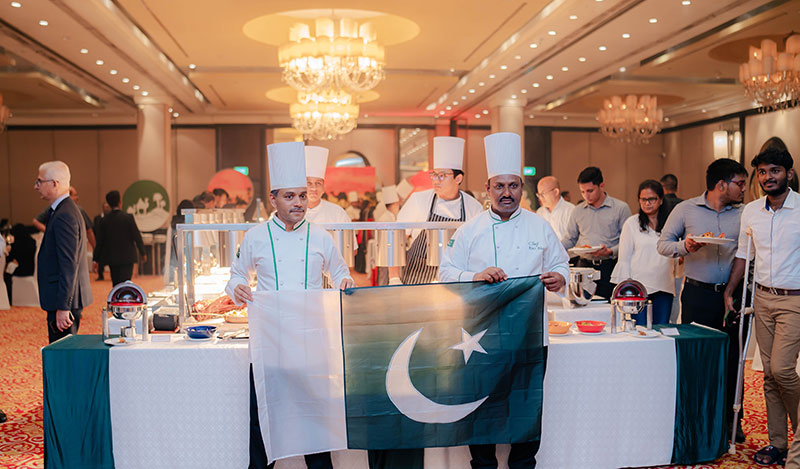
In a grand celebration of unity and tradition, Cinnamon Lakeside Colombo hosted an exclusive and elegant Iftar dinner at the prestigious King’s Court. This remarkable evening, hosted by Nazoomi Azhar, General Manager of Cinnamon Lakeside Colombo, brought together a distinguished gathering of ambassadors, key figures, top corporate executives, and esteemed members of the media.
The event showcased a spectacular array of culinary delights, with a highlight being the masterpieces crafted by renowned Pakistani Chef Riaz Bhatti. His exquisite creations, alongside an extensive selection of traditional and contemporary delicacies of Pakistani dishes, left guests in awe of the lavish spread and exceptional flavors.
Among the standout dishes of the evening were the rich and aromatic Mutton Raghni Josh, the flavorful Mutton Shahi Qorma, and the perfectly spiced Peshawari Beef Chapli Kabab. Guests also delighted in the Lahori Chicken Tikka Boti and the indulgent Chicken Peshawari Karahi, which added a taste of authenticity to the menu. The Iftar spread was further complemented by traditional desserts such as Gulab Jamun, Shahi Tukda, and Ras Malai, providing a sweet ending to the feast.
The atmosphere was one of warmth and hospitality, reflecting the spirit of Ramadan while offering a truly memorable experience. Guests were highly impressed with the impeccable service and the thoughtfully curated menu, making this Iftar dinner a standout occasion in Colombo’s social calendar.
Cinnamon Lakeside Colombo, under the leadership of Nazoomi Azhar, continues to set the benchmark for luxury hospitality, delivering unforgettable experiences through its commitment to excellence.
Life style
Women -building blocks in shaping history of Turkiye
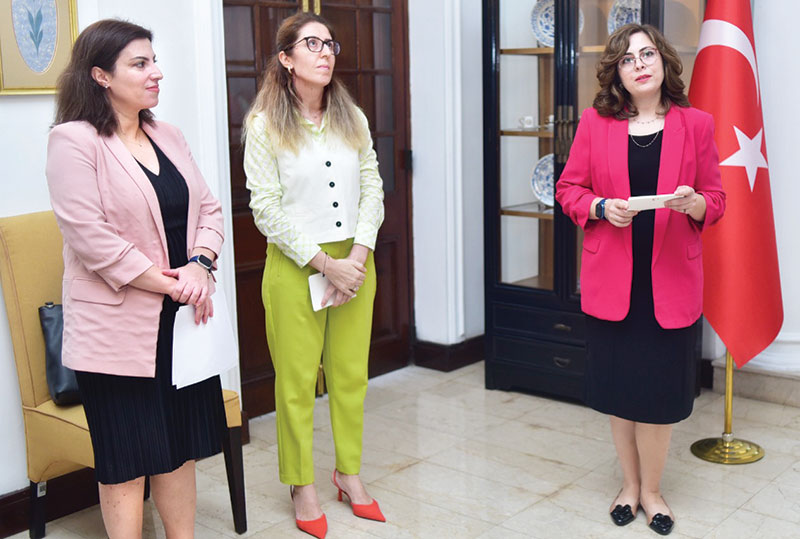
 In the Republic of Turkiye women have been one of the building blocks in shaping Turkiye for centuries. However, especially since the founding of the Republic, Turkiye has been one of the leading countries in the world, especially in terms of the political visibility of women. Women were given the right to vote long before women were given political rights in many democratic and modern countries.
In the Republic of Turkiye women have been one of the building blocks in shaping Turkiye for centuries. However, especially since the founding of the Republic, Turkiye has been one of the leading countries in the world, especially in terms of the political visibility of women. Women were given the right to vote long before women were given political rights in many democratic and modern countries.
Turkish women are known for their unwavering determination and resilience. They exhibit remarkable dedication and courage in pursuing their goals and challenge injustice. Their hard work and perseverence contribute to their advancement of society. These statements were expressed by the Deputy Chief of Mission of Turkiye M/S Merve Goozde Otlu at the residence of the Turkish Ambassador in Sri Lanka, on the occasion of the International Women’s Day.
This day is also important for Turkish women, who have played a vital role in shaping Turkish society, from the early days of our Republic to the present said the Deputy Chief of Mission. In her speech she also pointed out that the founder of the Republic, Mustafia Kemal Ataturk, has an important place in the hearts of all Turkish people, but his visionary leadership for women’s rights are especially precious for all women of Turkiye.
She explained “Ataturk strongly believed in women’s equality and emphasized that a modern and progressive society could only be achieved if women had equal opportunities as men’’
“Women were encouraged to participate in all areas of life, including education, work life and politics. One of the most remarkable steps Ataturk took was granting women the right to vote and as early as 1930, women were able to run for office at the local elections and in 1934 women were granted this right long before many other countries (One year after that, there were already 18 women MPs). When we look at Turkish history, we see countless inspiring women who have shaped our country, playing crucial roles achieving many milestones. These women have proved that Turkish women could achieve greatness in any field from science to business, from arts to sports, if given the opportunity, she remarked.
Turkish women have also made a significant contribution to diplomacy, a field often seen as male-dominated, she remarked.
For decades, Turkish women have been representing our country with strength and determination on the global stage. The first woman diplomat Mrs. Adile Ayda was recruited in 1932, while Ambassador Filiz Dinemen is the first woman Ambassador of Turkiye, assigned to the Hague in 1982.
Women representation has been increasing in the Ministry of Foreign Affairs, constituting almost 40% of the Ministry.
It is a personal honour for me to serve in a country like Sri Lanka, which gave the world the first female Prime Minister in history, Sirimavo Bandaranaike, she said with pride.
Her leadership showed that women can take on the highest responsibility and be a driving force not just for women but for the whole society.
The contribution of women in Turkiye in the field of Science and Technology is far reaching. She said in Turkiye, a prominent scientist who worked for NASA, whose research was instrumental in the legendary 1962 Apollo mission. She is Dihlhan Eryunt, was the recipient of the NASA Appolo Achievement Awards she said with pride.
The First Secretary, Imren Kaygisiz said Turkish women who have contributed to the development of the country and thier enduring impact on society who are still continuing to inspire strength,resilience and success of women
The Commercial Counsellor M/s Gamze Erc an also paid tribute to the founder of Modern Republic of Turkiye, Mustafa Kemal Ataturk who gave importance to education of Turkish women and leader believed that development of a nation depends on a strong education foundation.
The evening had all the trappings of glamour followed by high tea.
Life style
Sri Lanka showing strong commitment to gender equality
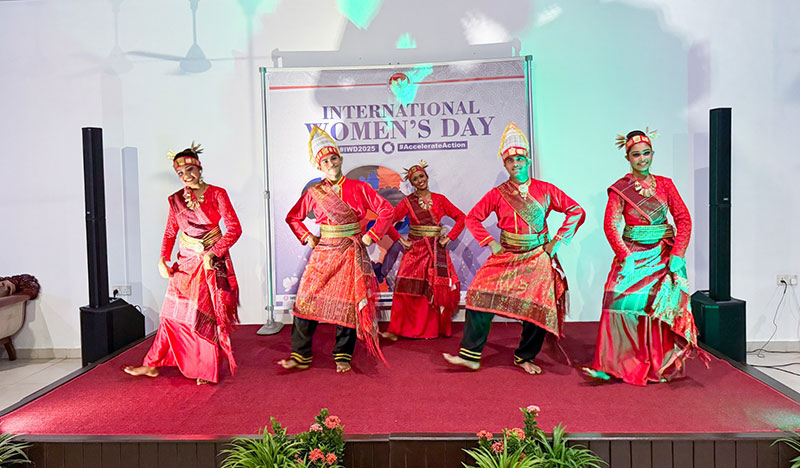
The Embassy of the Republic of Indonesia in sri Lanka hosted the International Women’s Day ceremony at thier residence.
Ambassador of Indonesia Dwi Gustina Tobing invited a large gathering of invitees including the Minister of Women and Child Affairs Saroja Savithri Paulraj who was the Chief Guest. CBL Group Managing Director Sheamalee Wickramasighe, popular musician Umaria Sinhawansa and Stephanie Siriwardena also addressed the gathering. The ambassador looking elegant was busy welcoming the guests at her residence.
An evening of camaraderie, glitz and glamour. The event featured an insightful session aimed to empower women, and served as a tribute to the commitment of women who has contributed immensely. The ambassador in her speech said by celebrating the achievements of women and amplifying their voices, we pave the way for a more inclusive and equitable society, where gender does not hinder opportunity but enriches collective experiences. Here is an excerpt from the ambassador’s speech.
A warm welcome to all of you. It is an honour to host this reception in commemoration of International Women’s Day 2025.
She said ” This year’s theme, “Accelerate Action”, is a powerful call to all of us. It underscores that equality cannot wait, and that all sectors of society must work together to speed up progress in women’s rights and empowerment.”
- CBL group managing director Sheamalee addressing the gathering
- Stephani and Umaria
Around the world, we have seen tremendous strides toward gender equality in politics, economics, and social spheres. Women are increasingly taking up leadership roles, contributing to economic growth, and shaping the future of our societies.
In Indonesia, we are proud of the progress we have made in advancing women’s participation. She said
She reiterated that 127 women were elected to parliament, making up 22.1% of the seats—the highest in our post-reform history. However, this is still below our target of 30%, which means there is room for improvement.
Our new cabinet includes 14 women, both as ministers and deputy ministers, demonstrating our commitment to gender-inclusive governance.
Beyond politics, women are the backbone of Indonesia’s economy. Micro, Small, and Medium Enterprises (MSMEs) contribute over 60% to the national GDP, and 64.5% of these businesses are managed by women.
Additionally, Indonesia ranks among the top four countries globally for female business leaders
She pointed out Sri Lanka, too, has made significant strides in women’s empowerment. When I met with Minister Saroja Savithri Paulraj last week, we discussed the progress Sri Lanka has made in increasing women’s representation in politics and the economy. From women entrepreneurs driving economic growth to initiatives supporting women in leadership, Sri Lanka is showing a strong commitment to gender equality.
Many countries have made progress in advancing women’s empowerment, yet, despite this progress, we must recognize that challenges remain. Women still face barriers to equal pay, leadership opportunities, financial inclusion, and social mobility. Gender-based violence, discrimination, and unequal access to resources continue to hinder the advancement of women in many parts of the world.
This is why collaboration is crucial. By sharing experiences, policies, and best practices, we can accelerate meaningful action to bridge the gender gap.
We must continue working together, fostering partnerships that empower women economically and socially. Indonesia is committed to strengthening collaboration with Sri Lanka and other nations to create more opportunities for women, recognizing their immense importance. Invitees were able to enjoy authentic Indonesian delicacies specially curated by the Ambassador herself.
By Zanita Careem
-

 Sports3 days ago
Sports3 days agoSri Lanka’s eternal search for the elusive all-rounder
-

 Features7 days ago
Features7 days agoCelebrating 25 Years of Excellence: The Silver Jubilee of SLIIT – PART I
-

 News4 days ago
News4 days agoGnanasara Thera urged to reveal masterminds behind Easter Sunday terror attacks
-

 Business7 days ago
Business7 days agoCEB calls for proposals to develop two 50MW wind farm facilities in Mullikulam
-

 Business5 days ago
Business5 days agoAIA Higher Education Scholarships Programme celebrating 30-year journey
-

 Features7 days ago
Features7 days agoNotes from AKD’s Textbook
-

 News2 days ago
News2 days agoBid to include genocide allegation against Sri Lanka in Canada’s school curriculum thwarted
-

 News3 days ago
News3 days agoComBank crowned Global Finance Best SME Bank in Sri Lanka for 3rd successive year


